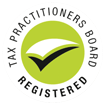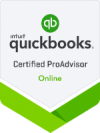Tradies work long and hard to meet tight deadlines, which often leaves little time or energy to think about taxes. As a result, many tradespeople either pay too much tax or miss changes in legislation and don’t pay enough tax. Does this sound familiar?
Tax tips for tradies
Tax can be tricky for tradies, and claiming tax deductions is just one part of the story. Each year, there are important steps every tradie should take to stay on track:
- Make a habit of checking in with your tax agent, especially if your business direction has shifted. A change in business structure or legislation can affect your taxes significantly, so it’s important to know what changes you can expect.
- Staying organised with expenses is crucial. Keep a detailed record and consider accounting software to help manage expenses and income.
- Receipts often fade, so snap a photo as soon as you get one and keep it in a folder on your phone or laptop.
What can tradies claim on tax?
Let’s take a look at a few work-related expenses that will boost your tax refund!
Common tradie tax deductions:
- Clothing (must have business logo)
- Tools and equipment – purchase, lease and repairs
- Technical instruments
- Protective items (hard hats, steel cap boots, safety glasses etc.)
- Laundering and cleaning of work clothes
- Sunscreen and sunglasses (if you work outside)
- Tablet, computer and mobile phone expenses (work-related portion only)
- Work-related software and computer accessories
- Home office running expenses (if applicable)
- Training courses, (if directly related to your current role)
- Professional libraries
- Journals/Manuals
- Car/vehicle expenses including parking, tolls, running expenses, fuel, km driven etc.
- Travel expenses (between sites, to pick up equipment or travel to training courses or meetings)
- Accommodation expenses when working away from home
- Union fees
- Insurances
- License renewals, permits and certifications
Claiming tools on tax
As a tradie, chances are you invest in quality tools that cost more than $300. That’s where depreciation comes in.
How to claim tools over $300
A tradie’s tools are capital assets because they help generate income. So, instead of claiming the full cost upfront, you spread the expense over the tool’s effective life through depreciation.
Depreciation is the gradual decline in a tool’s value. You can claim a portion of this loss each year, based on its expected lifespan. For instance, you depreciate a $1,000 power saw over five years and claim part of its cost each year.
How you claim depends on the depreciation formula you use:
- Straight line depreciation – this formula spreads the annual tax deduction evenly across the asset’s effective life.
- Diminishing value method – this formula allows for higher deductions in the earlier years and lower deductions the closer the asset gets to the end of its effective life.
Your Etax Local accountant will help you choose the right method to use.
Transporting bulky tools to work?
Generally, you cannot claim the travel costs for the journey between your home and your place of work. However, if you need to transport heavy goods and tools, you can. There are some rules that apply though so always get advice before you claim.
Keep it real
The ATO are very good at spotting fraudulent or inflated claims and they’re getting better all the time. Even your “private” details such as bank transactions are in the spotlight, if they suspect anything.
Don’t think that cash jobs are untraceable. The ATO may question tradie tax deductions – and lifestyles – that aren’t ‘reasonable’ for your income.
If you make dishonest claims, you risk landing yourself, and your finances, in hot water. So be honest when you lodge your tax return.
Please note: The content of this post is meant for general information purposes only. Not all items mentioned can be claimed by all tradies. Purchase limits and allowances can affect claims as can certain circumstances. Your tax agent will advise you on what you can and can’t claim, in keeping with your own particular circumstances.
Need more advice or want to get your tax return sorted?
No problem, simply contact us today by calling 1300 174 689. Alternatively, send us an email or request a quote and one of our friendly accounting team will get back to you as soon as possible.
 Tax Agent
Tax Agent



